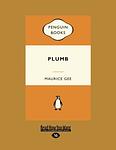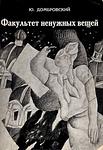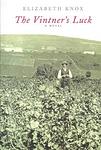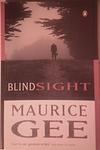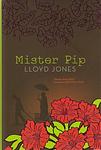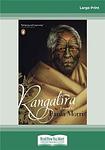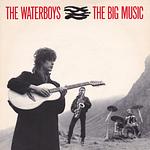The Greatest New Zealander, Russian "Historical fiction, Fiction" Books Since 1950
Click to learn how this list is calculated.
This list represents a comprehensive and trusted collection of the greatest books. Developed through a specialized algorithm, it brings together 300 'best of' book lists to form a definitive guide to the world's most acclaimed books. For those interested in how these books are chosen, additional details can be found on the rankings page.
Genres
Historical fiction is a genre of literature that combines fictional stories with real historical events, settings, and characters. These books often take place in a specific time period and are based on research and factual information, but also include imaginative elements to create a compelling narrative. Historical fiction allows readers to experience the past in a unique and engaging way, while also providing insight into the social, cultural, and political issues of the time.
Countries
Date Range
Reading Statistics
Click the button below to see how many of these books you've read!
Download
If you're interested in downloading this list as a CSV file for use in a spreadsheet application, you can easily do so by clicking the button below. Please note that to ensure a manageable file size and faster download, the CSV will include details for only the first 500 books.
Download-
1. Doctor Zhivago by Boris Pasternak
Set against the tumultuous backdrop of the Russian Revolution, the book follows the life of a physician and poet, Yuri Zhivago, as he navigates the political and social upheaval of the early 20th century. Torn between his love for two women, his wife Tonya and his passionate mistress Lara, Zhivago's personal struggles mirror the larger societal changes occurring around him. The novel explores themes of love, war, and the human spirit, offering a poignant and complex portrait of life during a time of revolutionary change.
-
2. Life and Fate by Vasily Grossman
"Life and Fate" is a sweeping epic that explores the human condition during the Siege of Stalingrad in World War II. The novel delves into the lives of a wide range of characters, from soldiers and scientists to children and victims of the Holocaust, providing a stark and unflinching portrayal of the horrors of war, the brutality of totalitarianism, and the resilience of the human spirit. At the same time, it also examines themes of love, loss, and the struggle for freedom and dignity in the face of overwhelming adversity.
-
3. Cancer Ward by Aleksandr Solzhenitsyn
"Cancer Ward" is a poignant novel set in a Soviet cancer hospital in the mid-1950s. It follows the lives and struggles of patients and doctors, exploring their personal histories, relationships, and the political environment of the time. The hospital serves as a metaphor for the oppressive Soviet state, with cancer symbolizing the malignant growth of totalitarianism. The book also explores themes of mortality, the human spirit, and the will to survive.
-
4. Summer in Baden-Baden by Leonid Tsypkin
"Summer in Baden-Baden" is a unique blend of fact and fiction that intertwines the author's own travels to Leningrad with a reimagining of Fyodor Dostoevsky's summer in Baden-Baden, Germany. The narrative shifts between the two journeys, exploring themes of obsession, identity, and the power of literature. The author's fascination with Dostoevsky serves as a lens through which he examines his own life and experiences as a Jew in Soviet Russia, while also providing a fresh perspective on the famous Russian author's life and works.
-
5. August 1914 by Aleksandr Solzhenitsyn
"August 1914" is a historical novel set during the early days of World War I, focusing on the disastrous Battle of Tannenberg on the Eastern Front. The book provides a detailed portrayal of the Russian army's defeat, largely due to incompetent leadership and lack of communication. The narrative also delves into the lives of the soldiers and civilians involved, offering a broad examination of Russian society and the impending revolution.
-
6. Sofia Petrovna by Lydia Chukovskaya
The book is a poignant narrative set during the Stalinist purges of the 1930s in the Soviet Union. It follows the story of a loyal and hardworking widow who is confronted with the brutal reality of the regime when her beloved son is arrested on false charges. As she navigates the Kafkaesque bureaucracy to seek justice for her son, her faith in the government and its policies is shattered. The novel offers a harrowing look at the terror of the Great Purge and the impact of political oppression on the lives of ordinary citizens, as the protagonist grapples with the disintegration of her world and the moral dilemmas posed by a society steeped in fear and denunciations.
-
7. Plumb by Maurice Gee
In "Plumb" by Maurice Gee, readers are introduced to a small New Zealand town called Waimaru, where a tragic accident occurs, leaving a young boy dead. The aftermath of this event reveals the dark secrets and hidden tensions within the community, as the lives of various characters intertwine and unravel. With beautifully crafted prose and a keen exploration of human nature, Gee delves into themes of guilt, loss, and the complexities of human relationships, creating a gripping and thought-provoking narrative.
-
8. The Burn: A Novel in Three Books : (late Sixties--early Seventies) by Vassily Aksyonov
"The Burn: A Novel in Three Books : (late Sixties--early Seventies)" is a historical novel that explores the cultural and political landscape of the Soviet Union during the late 1960s and early 1970s. The book follows a group of intellectuals, artists, and dissidents who are striving to preserve their individuality and freedom in a society that is increasingly oppressive and conformist. The narrative is punctuated by surreal and fantastical elements, reflecting the characters' struggle to maintain their sanity and dignity in a world that seems to be spiraling into madness.
-
9. The Faculty of Useless Knowledge by Yuri Dombrovsky
"The Faculty of Useless Knowledge" delves into the life of a historian caught in the oppressive atmosphere of Stalinist Russia. The narrative explores the intellectual and emotional turmoil of the protagonist, who is ensnared in the brutal machinery of the Soviet state's ideological and bureaucratic control. Through his experiences and reflections, the book examines themes of memory, history, and the struggle to maintain intellectual integrity in a repressive society. The protagonist's journey is a poignant commentary on the value of knowledge and the human spirit's resilience against totalitarian forces.
-
10. Farewell To Matyora by Valentin Rasputin
The book is a poignant exploration of the tension between progress and tradition, set in a small Siberian village that is doomed to be submerged by the construction of a hydroelectric dam. As the government mandates the relocation of the village's inhabitants, the narrative delves into the lives of the villagers who are grappling with the loss of their ancestral home and way of life. The story is a meditation on the cost of modernization, the deep connection between people and their land, and the inevitable passing of time that brings change, often at the expense of cultural heritage and personal identity. Through the villagers' resistance and sorrow, the novel examines themes of environmental impact, the clash of ideologies, and the resilience of the human spirit in the face of displacement.
-
11. Medea And Her Children by Lyudmila Ulitskaya
"Medea And Her Children" by Lyudmila Ulitskaya is a powerful and emotionally charged novel that delves into the complex relationships between a mother and her children. Set in Soviet Russia, the story follows the lives of three generations of women as they navigate the challenges of love, sacrifice, and the oppressive political climate. Through vivid and compelling storytelling, Ulitskaya explores the universal themes of family, loyalty, and the enduring strength of a mother's love.
-
12. The Luminaries by Eleanor Catton
Set during the New Zealand Gold Rush of the 19th century, this novel follows Walter Moody, a prospector who stumbles upon a secret meeting of twelve local men who are trying to solve a series of unsolved crimes. As the story unfolds, it becomes clear that the crimes, which include a rich man's disappearance, a prostitute's attempted suicide, and a huge fortune found in a drunkard's cottage, are all interconnected. The novel's complex narrative structure, which uses astrology to organize its characters and events, adds another layer of intrigue to the story.
-
13. Klotsvog by Margarita Khemlin
"Klotsvog" is a poignant and introspective novel that follows the life of Maya Abramovna Klotsvog, a Jewish woman living in Soviet Russia during the 20th century. Through Maya's perspective, the book explores themes of identity, love, and the struggles faced by Jews in a society plagued by anti-Semitism. With a blend of humor and tragedy, the story delves into Maya's personal relationships, her experiences as a mother and wife, and her resilience in the face of adversity. Ultimately, "Klotsvog" is a profound exploration of one woman's journey through life and her unwavering spirit in the midst of societal challenges.
-
14. Zuleikha by Guzel Yakhina
"Zuleikha" is a captivating historical novel set in 1930s Soviet Union, following the life of Zuleikha, a Tatar woman who is forcefully taken from her home and exiled to Siberia. As she struggles to adapt to the harsh conditions of the remote village, Zuleikha finds solace in her resilience and the unexpected connections she forms with her fellow exiles. Through her journey of survival, love, and self-discovery, Zuleikha's story beautifully explores themes of identity, freedom, and the indomitable human spirit.
-
15. The Vintner's Luck by Elizabeth Knox
"The Vintner's Luck" is a captivating novel that follows the life of a young vintner named Sobran, who forms an unlikely friendship with an angel named Xas. Set in 19th century France, the story explores themes of love, passion, and the pursuit of dreams as Sobran navigates the challenges of winemaking and the complexities of his relationships with both mortals and celestial beings. Through beautifully descriptive prose and rich character development, the book delves into the intricacies of the human spirit and the intertwining of the mundane and the divine.
-
16. Live Bodies by Maurice Gee
In "Live Bodies" by Maurice Gee, a small town in New Zealand becomes the setting for a mysterious and unsettling series of events. As the townspeople grapple with their own secrets and desires, a young girl named Alice discovers a hidden power within herself. As tensions rise and the lines between reality and fantasy blur, Alice must confront the darkness that lurks beneath the surface of her seemingly idyllic community. With rich prose and a captivating plot, "Live Bodies" explores themes of identity, power, and the complexities of human nature.
-
17. The Book Of Fame by Lloyd Jones
"The Book of Fame" by Lloyd Jones is a captivating novel that delves into the lives of the 1905 All Blacks, New Zealand's first national rugby team. Through a series of interconnected stories, the book explores themes of fame, identity, and the impact of sport on society. It offers a unique perspective on the players' journey to international recognition, their struggles, triumphs, and the lasting legacy they leave behind. With its lyrical prose and rich characterization, this book is a celebration of both rugby and the human spirit.
-
18. Tu by Patricia Grace
"Tu" is a heartfelt novel that explores the life of a young Maori boy named Tu, who is raised by his grandparents in rural New Zealand. Set in the 1960s, the story follows Tu's journey as he navigates the challenges of growing up in a changing society, grappling with his identity, and finding his place within his community. Through vivid storytelling and rich cultural references, the novel delves into themes of family, tradition, and the enduring power of love and resilience.
-
19. Blindsight by Maurice Gee
In a dystopian world where a mysterious disease has left people blind, a young boy named Theo possesses the ability to see. As he navigates through a society that fears and shuns him, Theo discovers a hidden underground community of others with sight. Together, they embark on a dangerous journey to uncover the truth behind the epidemic and restore hope to their shattered world. This captivating novel explores themes of resilience, acceptance, and the power of perception.
-
20. Mister Pip by Lloyd Jones
In a war-torn village on a remote island, a young girl named Matilda finds solace and escape in the pages of a book called "Great Expectations". Taught by a mysterious and charismatic teacher, Mr. Watts, Matilda becomes enthralled by the story and its protagonist, Pip. As the conflict escalates and the outside world encroaches upon their isolated community, the power of literature and the transformative impact of storytelling are revealed, leaving a lasting impression on Matilda and those around her.
-
21. As The Earth Turns Silver by Alison Wong
Set in early 20th century New Zealand, "As The Earth Turns Silver" is a historical novel that explores the complex relationships between Chinese immigrants and the European settlers. The story follows the lives of two characters, a Chinese immigrant named Yung, who works as a valet for a wealthy white family, and Katherine, the wife of the family's lawyer. As their lives intertwine, they navigate the societal prejudices and expectations of the time, while also confronting their own desires and secrets. Through their forbidden love affair, Wong delves into themes of identity, racism, and the struggle for acceptance in a changing world.
-
22. The Hut Builder by Laurence Fearnley
"The Hut Builder" is a captivating novel that follows the journey of a middle-aged man named Boden Blackwood, who retreats to the remote wilderness of New Zealand to build his dream hut. As he immerses himself in the challenging task of constructing the hut, Boden's solitude is interrupted by unexpected encounters with the locals, each bringing their own stories and struggles. Through these interactions, Boden discovers the profound impact that human connections can have on one's sense of purpose and belonging. With beautiful prose and a deep exploration of solitude and community, this novel takes readers on a reflective and moving journey of self-discovery.
-
23. Rangatira by Paula Morris
"Rangatira" is a historical fiction novel set in 19th century New Zealand. The story follows the journey of a young Maori chief, who, after being chosen as a rangatira (leader) of his tribe, embarks on a voyage to England. Through his experiences in the unfamiliar Western world, the protagonist grapples with cultural clashes, identity, and the complexities of colonialism. The narrative seamlessly weaves together Maori mythology, European history, and personal reflections, offering a thought-provoking exploration of indigenous perspectives in a changing world.
-
24. The Big Music by Kirsty Gunn
"The Big Music" is a profound and lyrical novel that explores the life of a Scottish bagpiper and his obsession with composing a piece of music that captures the essence of his family's history and the rugged landscape of the Highlands. Through a series of interwoven narratives, the book delves into themes of love, loss, and the power of music to transcend time and connect generations. With its rich prose and evocative descriptions, the novel immerses readers in a mesmerizing tale of creativity, heritage, and the enduring power of the human spirit.
-
25. The Wish Child by Catherine Chidgey
"The Wish Child" is a powerful and haunting novel that explores the lives of two children, Sieglinde and Erich, growing up in Nazi Germany. Set against the backdrop of World War II, the story delves into the complexities of their friendship and the impact of the Nazi regime on their lives. Through vivid and evocative prose, the author skillfully captures the innocence and resilience of children in a time of darkness and uncertainty, while also shedding light on the moral dilemmas faced by ordinary individuals during a tumultuous period in history.
Reading Statistics
Click the button below to see how many of these books you've read!
Download
If you're interested in downloading this list as a CSV file for use in a spreadsheet application, you can easily do so by clicking the button below. Please note that to ensure a manageable file size and faster download, the CSV will include details for only the first 500 books.
Download





